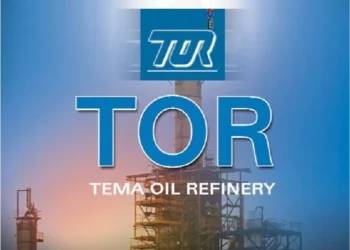The Ministry of Energy and the Energy Commission has directed the Electricity Company of Ghana (ECG) to initiate competitive procurement for a total of 100 megawatts (MW) solar plant capacity from Independent Power Producers (IPPs) for the next five years as part of plans to develop and utilize Ghana’s renewable energy resources.
Speaking at the 6th Ghana Renewable Energy Fair, Energy Minister, John Peter Amewu said, the initiative which is in line with Ghana’s Renewable Energy Master Plan, is expected to trigger the amendment of the current Renewable Energy Act 2011 to provide legal backing to aid the IPPs in developing the solar energy capacity.
Mr. Amewu, also revealed that, the Amendment Bill is currently before Cabinet for consideration and approval by Parliament adding that, the bill encourages small-scale self-generation and net-metering from renewables.

“The Amendment Bill mandates fossil fuel-based wholesale electricity suppliers, fossil fuel producers, and other companies that contribute to greenhouse gas emissions to complement the global effort of climate change mitigation by investing in non-utility scale renewable energy technologies particularly for off-grid electrification.”
The Minister said he was hopeful that, the bill would be approved by Parliament before recess.
Peter Amewu then noted that, the mini-grid electrification is now an integral part of the rural electrification scheme and will be a public sector-led investment where the assets and infrastructure are handled in the same manner as grid extension.
“In that regard, the government will engage the private sector to undertake the supply and installation of mini-grid systems and then hand them over to a public utility entity to manage and operate just like what pertains under rural electrification through grid extension.”
He added that to further cement the gains, government is concluding plans for additional mini-grids to be installed on 55 islands and lakeside communities in 10 districts along the Volta Lake.
“The beneficiary communities have already been selected and feasibility studies are almost completed. Procurement process is also underway for the award of contract to install and connect approximately 4000 households in these Districts.”

Senior Minister, Yaw Osafo Marfo, speaking also, expressed optimism towards the gains made by Ghana in the quest to provide efficient and affordable energy resources for the country’s industrialization agenda.
The first 45KW micro-hydro power plant known as Tsatsadu Generating Station (TGS) which is part of the country’s renewable energy initiative has been completed by Ghanaian engineers and will soon be commissioned. The facility has the possibility of accommodating another 45KW capacity turbine in the future.
This year, the VRA added 6.54 MW solar PV power at Lawra in the Upper West Region to the country’s energy mix. Installation works for additional 62MW solar plant comprising of 12MW in Kaleo by VRA in the Upper West Region and 50MW in Bui by Bui Power Authority in the Bono Region are at various stages of completion, while the construction of the Pwualugu Multipurpose Power Plant comprising 60MW hydro power hybridized with a 50MW solar plant by the VRA has also commenced.
Meanwhile, government is as well implementing its rural electrification scheme to make electricity available to rural communities in the country.
Through grid extension, government is hopeful that island and lake-side communities can benefit from decentralized mini-grid systems.
Currently, five island communities on the Volta Lake, have a mini-grid system installed by the Energy Ministry. These installed grids have been handed over to the VRA to own, manage and operate.
The Sixth Ghana Renewable Energy Fair was on the theme, ‘Renewable Energy and Energy Efficiency in Achieving Ghana’s Industrialization Agenda’.





















